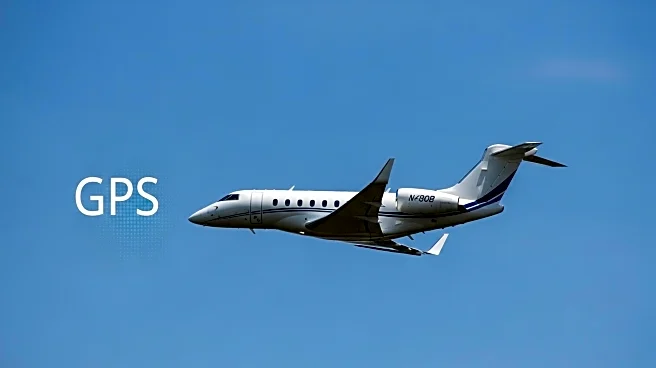What's Happening?
A plane carrying European Commission President Ursula von der Leyen was subjected to GPS navigation jamming while attempting to land in Bulgaria. The incident, suspected to be orchestrated by Russia, was reported by Bulgarian authorities. Despite the interference, the plane landed safely using paper maps. Von der Leyen has been a vocal supporter of Ukraine amidst its conflict with Russia, and the incident occurred during her tour of Eastern European member states to rally support for Ukraine. This event highlights the ongoing threats from Russia, as von der Leyen continues to advocate for increased EU resources to aid Ukraine.
Why It's Important?
The GPS jamming incident underscores the persistent threat posed by Russia's hybrid warfare tactics, which include disrupting navigation systems. Such actions have been reported in Scandinavian and Baltic regions, affecting both aviation and maritime operations. The interference serves as a reminder of the geopolitical tensions in Eastern Europe, particularly as the EU seeks to bolster its defense capabilities and support Ukraine. The incident may further strain EU-Russia relations and reinforce the EU's commitment to counter Russian aggression, impacting diplomatic and security policies within the region.
What's Next?
The European Union may consider additional sanctions against Russian entities linked to GPS jamming incidents. Von der Leyen's ongoing tour aims to strengthen EU unity and resolve against Russian aggression, potentially leading to increased military and economic support for Ukraine. The EU's response to this incident could involve heightened security measures for officials traveling in regions susceptible to Russian interference. Continued diplomatic efforts will be crucial in addressing the security challenges posed by Russia's actions.
Beyond the Headlines
The incident raises concerns about the safety of international travel for political leaders in regions affected by Russian interference. It also highlights the broader implications of Russia's hybrid warfare tactics, which could disrupt critical infrastructure and communications. The EU's response may involve technological advancements to counteract GPS jamming and protect navigation systems, reflecting the evolving nature of modern warfare and the need for robust cybersecurity measures.











